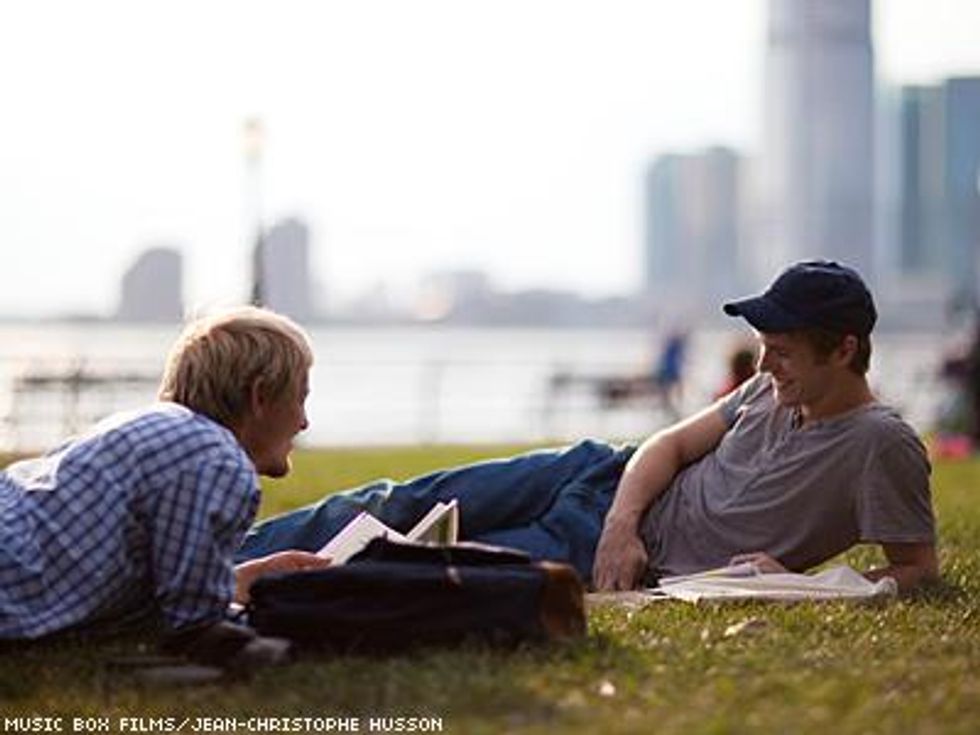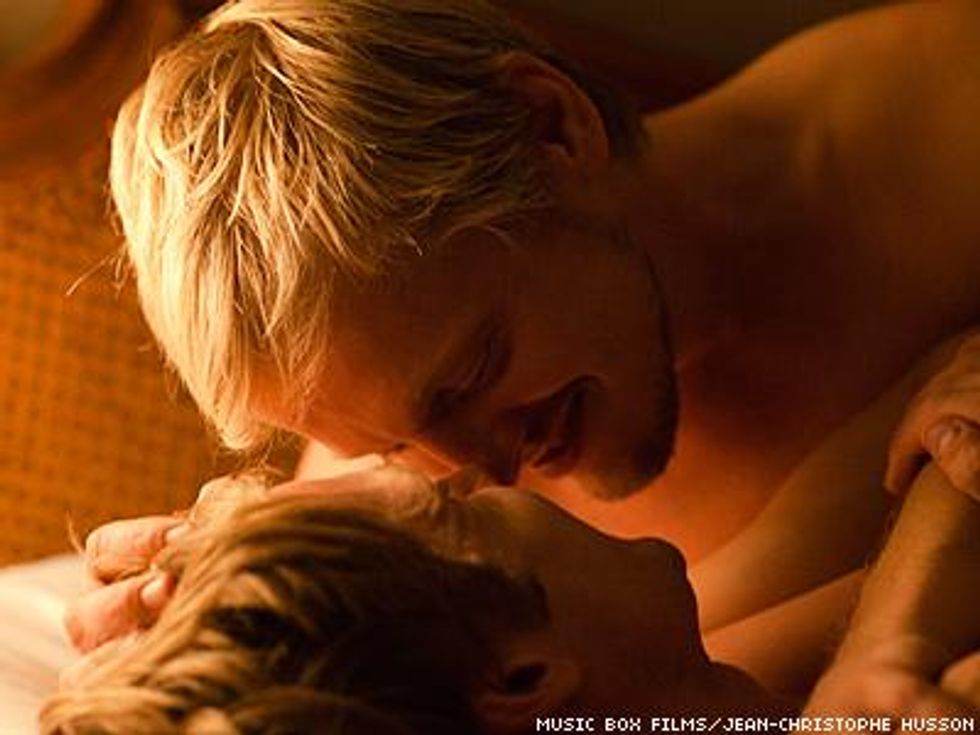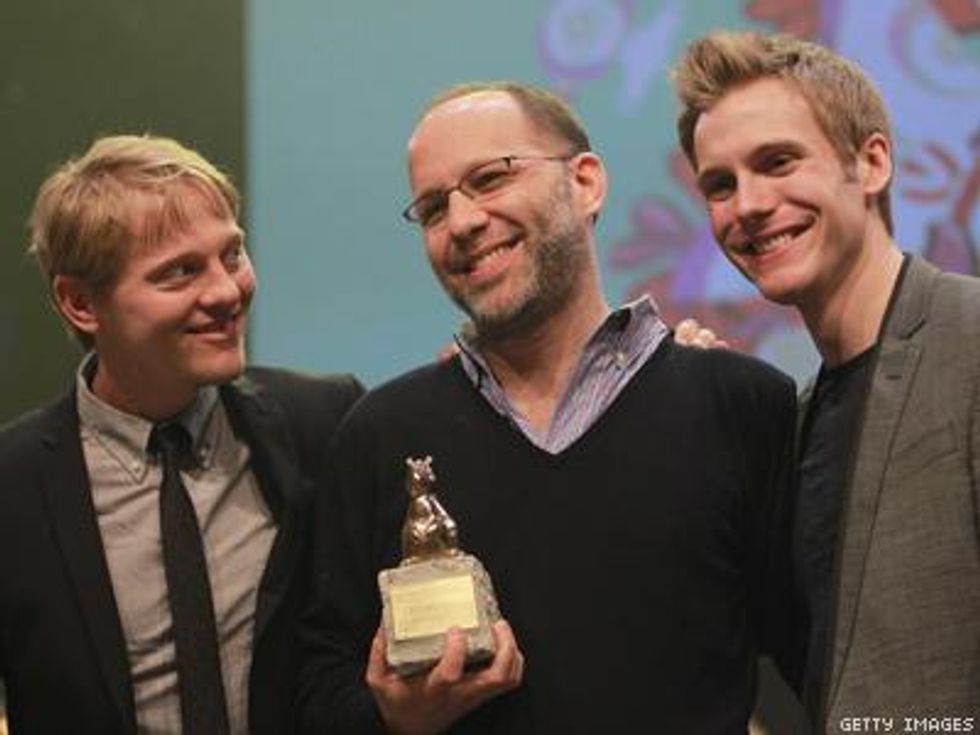
With Keep the Lights On, his powerful new movie about an ill-fated romance, filmmaker Ira Sachs shines a light on his own sex and drug-fueled past.
September 06 2012 10:57 PM EST
November 17 2015 5:28 AM EST
By continuing to use our site, you agree to our Private Policy and Terms of Use.

With Keep the Lights On, his powerful new movie about an ill-fated romance, filmmaker Ira Sachs shines a light on his own sex and drug-fueled past.
During the hey-day of the new queer cinema movement in the mid-1990s, Ira Sachs garnered acclaim for his award-winning film, The Delta. Since his extraordinary debut fifteen years ago, Sachs has dabbled in mainstream with the dark Rachel McAdams comedy Married Life but makes a very welcome return to LGBT-themed cinema returns with Keep the Lights On (now playing in select theaters). Heavily influenced by European cinema's unrepentant exploration of explicit sexuality, the searing new drama features complex gay characters searching for love and intimacy. Keep the Lights On is also an autobiographical story of a decade long relationship bound together by shame, sex, and addiction. Sachs speaks with The Advocate about his justly acclaimed new film, how much of it is based on his own life, and the pain of saving boyfriends from self-destruction.
The Advocate: You co-wrote Keep the Lights On (with Mauricio Zacharias) and the story is semi-autobiographical. How much is based on actual events that happened in your life?
Ira Sachs: The film is closely based on a relationship I was in that ended in 2008. On the last day of that relationship I had a strong sense that there had also been a first day 10 years before and there was good story in between. A lot of the issues that we faced as a couple were ones that were common to a lot of people. The end of the relationship inspired a lot of things. It combusted because we tried to control and maintain a relationship that was extraordinarily destructive and we both felt that we could hold it all in and make it work. After that relationship I refused to live a life that wasn't honest. That was a huge transformation for me.
Has your ex seen the film?
He has seen the film. He has been very supportive of it. I'm guessing it's not easy for him, but he has been supportive.
Keep the Lights On is anchored by remarkable performances from Thure Lindhardt and Zachary Booth. Thure is a renowned actor in Europe and appeared in some American films, but is certainly not well known here. How did he come to be in the film?
When I finished the script I had a strong sense that in all likelihood the film would not be cast in a conventional way based on the sexuality and frankness of the material, and the gayness of the material. I started working on casting the way I had previously, which usually involves sending it to agents in L.A. and ... Let's put it this way, I got a reply from one agent who said, "No one in our agency would be available for this film." It was sort of confirming my thoughts that the material was perhaps out of the realm of American ordinariness. I have worked with European actors before and I heard about Thure Lindhardt from a Danish screenwriter friend of mine who said, "Thure Lindhardt is the bravest actor in Denmark." I thought, "That sounds pretty good!"

You cast Thure and Zachary to play lovers without having them read together first. Were you nervous when it came time to shoot that they wouldn't have chemistry together?
Thure came to America about a week before shooting and I sent them out on a date without me. They went to see to a Broadway play. I think it was Anything Goes or Next to Normal. Then they went out to a club and danced until late in the night and they got along really, really well. And I think that was the best thing. These two guys had an enormous affection for each other that I think turned into a kind of love and friendship. On the advice of director Antonio Campos, who had just done a film with a lot of sex, we shot the sex scenes early. We shot the opening sex scene of the movie on the second day. In a way it liberated all of us... and it was the actors who took us there.
John Cameron Mitchell's Shortbus pushed boundaries with its graphic nudity and explicit sexuality. Did you feel encouraged to show and do more based on the success of that film?
Shortbus was setting out to do something different. I love Shortbus, but Shortbus was trying to integrate narrative into explicit sexuality. What I'm trying to do is tell a story which includes sex... and that's kind of different. If you look at the history of European cinema there is not a fear of the naked body. The naked body is not this foreign object that needs to be put into the dark. And that's something you can see in films like Last Tango in Paris and Taxi zum Klo.

There are two forms of addiction happening in Keep the Lights On. Paul is addicted to drugs. Erik is addicted to Paul and trying to rescue him. Both seem equally destructive.
I think that this is a very mutual relationship in which they both choose to go forward in something that is, from the start, loaded against them. I am now a member of Al-Anon and I've learned a lot about addiction and co-dependency. I think half the world is prone to these kinds of relationships. When I first met my ex-boyfriend and he pulled out a crack pipe in the first month we were together, my response was, "Let's move in together and spend the rest of our lives together." Half the world that would say, "Nice to meet you. Go get some help and come back." But, half of the world is like me. I was well read, intelligent, generally smart, and so deeply ignorant about the pattern of that relationship and how common it was. Even though I saw this was high octane, bad stuff, I was drawn in immediately. I really believed I could save my partner and that was my job. I also believed without my partner I was nothing.
When did you realize you couldn't save him?
Not until it was over.
I found myself repeatedly frustrated by these two men. One moment I was rooting for their passionate, beautiful love affair and at other times their relationship was so destructive I was angry at both of them for staying in it. What kind of reaction are you getting from audiences?
The part that is most rewarding for me is that people very quickly start talking about themselves. I think the film works as a trigger to make people consider their own relationships and the dynamics within those relationships. There is a wide range of responses. The film makes people uncomfortable and it gives people pleasure. It's a film that encourages people to be introspective.

There's a scene in Keep the Lights On where Erik wins a Teddy Award for his documentary. Keep the Lights On won The Teddy Award for Best Feature Film in Berlin. How's that for life imitating art!
The film was really well received there. It was nice to be in Berlin after Sundance because the film doesn't seem racy or any way confrontational within the context of European cinema, particularly in Berlin. Berlin and Los Angeles have been two of the best screenings we've had.
Now that you've made the film and it's been released theatrically do you feel healed from the relationship that influenced it?
I did my therapy earlier, to tell you the truth. I've been in recovery programs and various things. I wouldn't have started making this film until I sensed that I had already worked through a lot of experiences of which it came. What has been cathartic has been the affirmation as a filmmaker; the importance of telling this kind of story and the need to do so. That has been life changing.
Watch the film's trailer below.